One of the reasons I love what I’m doing is because I have the chance to meet interesting people, interact and share unique stories. When I tour with descendants of the battle’s fighters is my favorite! Today, after our long e-mail conversation I met Jan from Australia. A lovely woman who wanted to follow the footsteps of her father in Crete. We were talking about her father’s history and I made a research for the actions of his regiment during the battle of Crete. It was difficult to learn specific information of the 2/3 Australian light Anti Aircraft Regiment before the tour but I found out the positions of the A/A guns in Maleme and then the POW camp location in Skines village.
So, Roy East was a young soldier of the 9th Australian A/A Battery and belonged to the 2/3 Light A/A Regiment. As a lot others, he lied about his age to join the AU army and seek for a new adventure overseas. A countryside boy with restless spirit from Victoria, Australia, smart and perspicacious according to his daughter’s sayings. He started his training in Australia and he was promised a gun since he left for Egypt. The boat which was bringing the guns was sunk and he left Australia without one.
After their training in Egypt, they left for Crete from Alexandria port. Roy didn’t participated in the war campaign in mainland Greece. His regiment was sent directly to Crete instead. They arrived in Souda bay by the end of April 1941 along with the evacuating troops from the mainland. The 9th A/A Battery, as the 7th, operated the Bofor A/A guns around Maleme airfield and the hill 107. Through my research I managed to locate 9 Bofor A/A guns around Maleme airfield. Three to the west side, another three north of the runway to the coast and the rest three to the east side. There were three other 75mm A/A guns on the hill 107. According to Jan, her father slept well the last night before the German invasion under some olive trees. So I assumed that the Bofor gun he served was east or west of the airfield.
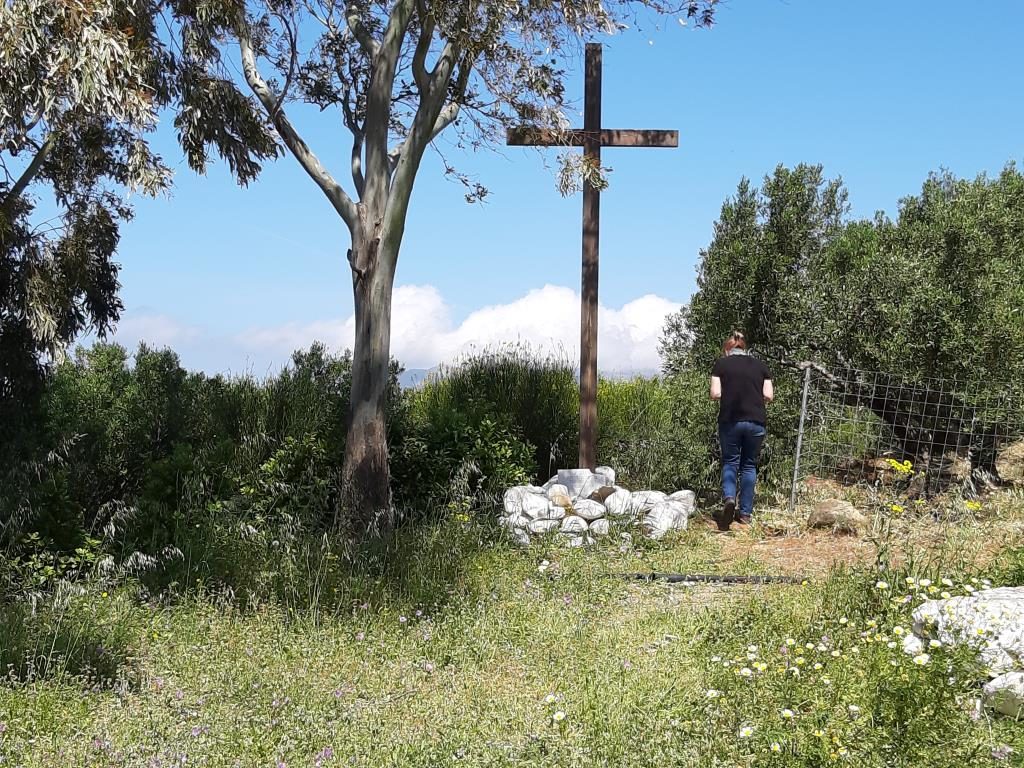
Roy never had his personal rifle until a cousin of his from New Zealand who also served in Maleme gave him one. He didn’t have any training to the Bofor guns and he was quite worry about the upcoming invasion. Also the information among the soldiers were extremely poor and they were discussing only about rumors.
The airborne invasion started in the morning of the 20th of May 1941 and Roy was in the heart of the facts. The air superiority of Luftwaffe made the job of the A/A guns even harder and on May 21st after the capture of Maleme airfield the previous night, Roy was captured as POW from the Germans. The POWs stayed for a couple of days in Maleme and there Roy experienced one of the most horrible days of his life. A German officer ordered a group of 15-20 POWs to start digging some graves close to the beach. After they finished the job the German officer ordered them to stand in front of the graves and they shot them. Roy was in the next line, member of the second group. Germans ordered them to do the same and Roy believed that he will die. He was patiently waiting for the bullet when Germans started to laugh on them and fool them. These graves were not for them but for dead German soldiers.
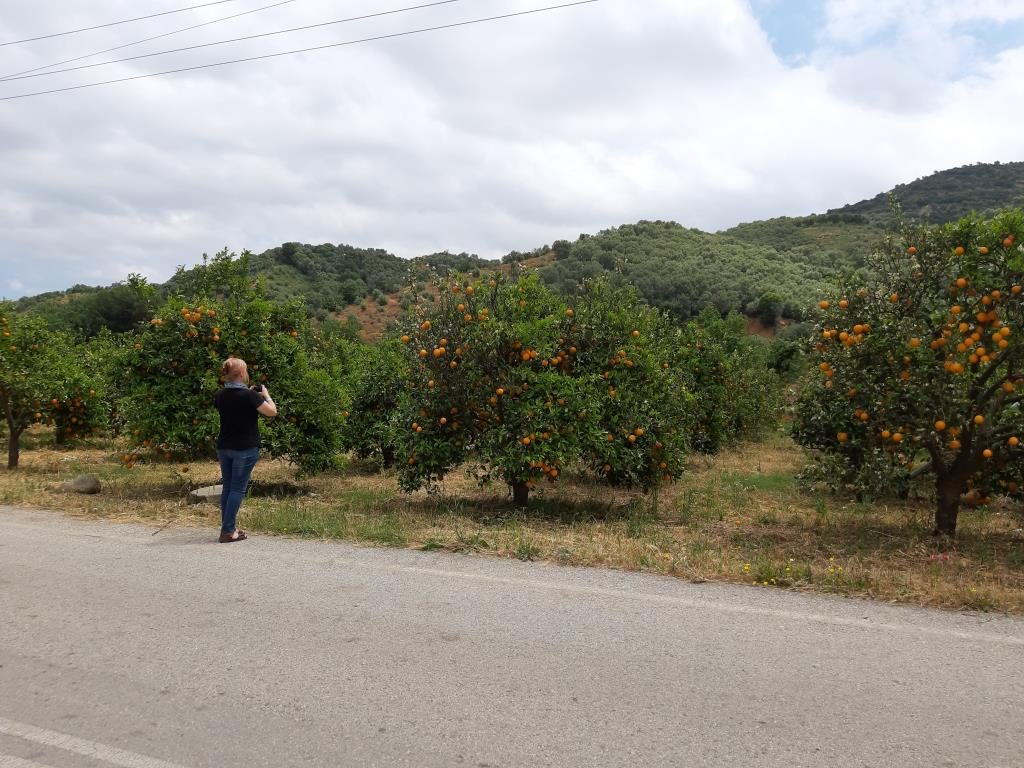
Roy survived but he never forgot this horrific scene of his companions dying in front of his surprised eyes in this way. Then he was transferred to a POW camp in Skines village along with 110 other Australian soldiers. Today it is a lovely place full of orange trees but back then, it was the new place of Roy and his comrades. His family back in Australia believed that he was dead due to a telegram sent from the HQ that he was missing in action. He stayed for two months in Skines and when the Germans asked for a cook he offered for the job. He had no idea of cooking but he had trousers with pockets. That means that he could steal food for him and his fellows. Ninety-four Australians transferred to Italy after the two months and Roy with 15 other transferred to Thessaloniki (North Greece) POW camp. After totally 4-5 months in Greece Roy was sent to a working camp in Munich.
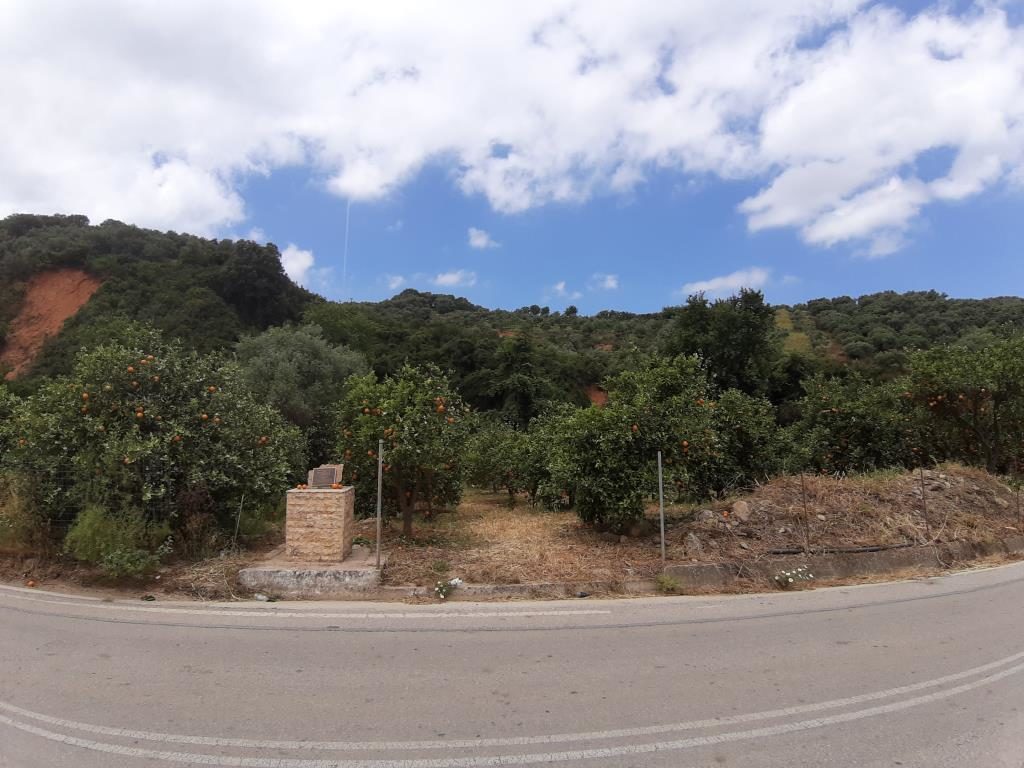
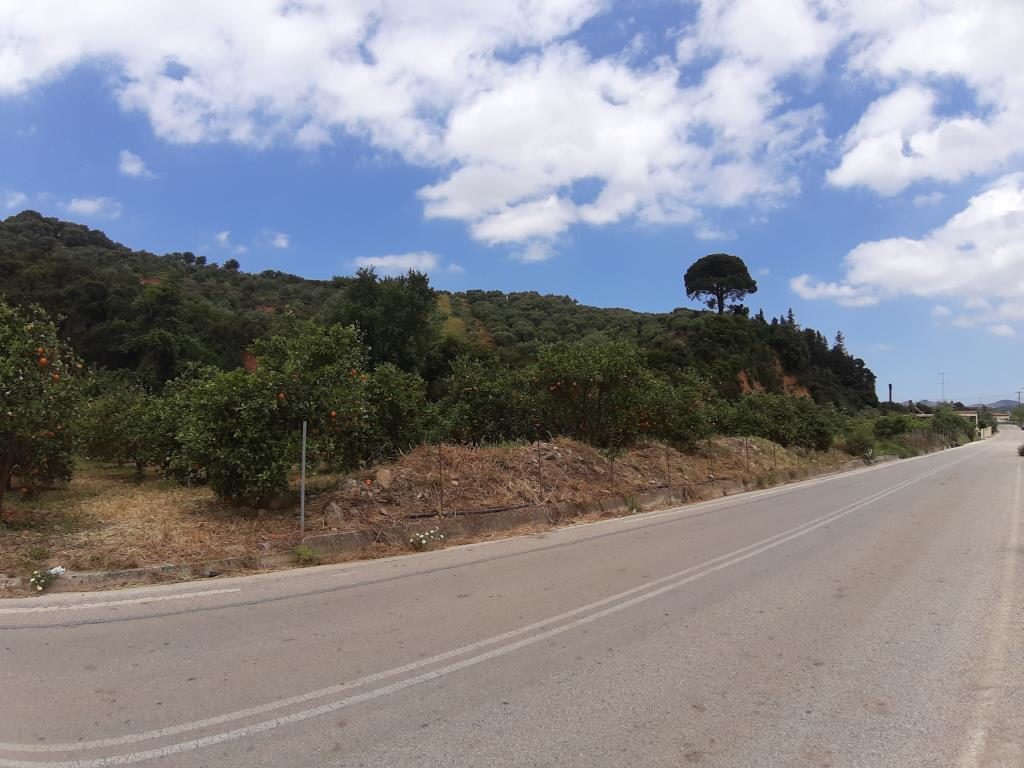
His tireless spirit is leading him to escape Munich after one year of forced labor in the mines. He escaped on a train and he reached the Austrian boarders. His plan was to swim in the other side of the river but the Waffen SS caught him. The SS officer believed that he was a spy and transferred him to Bruno, Czechoslovakia as a political prisoner. He was about to be transferred to Auschwitz Birkenau but the Red Cross saved him last minute and sent him to Lamsdorff (Łambinowice), Poland.
Finally, Roy was sent to the famous Death Marches in the cold winter of 1945. He used to talk about the huge difficulties he faced in this period. His feet were always cold and they could not fit to his miserable shoes. He used to tie cloths and bags around his legs to keep them warm. After every stop he was begging his friends to leave him there. He couldn’t carry on! But fortunately his friends never abandoned him.
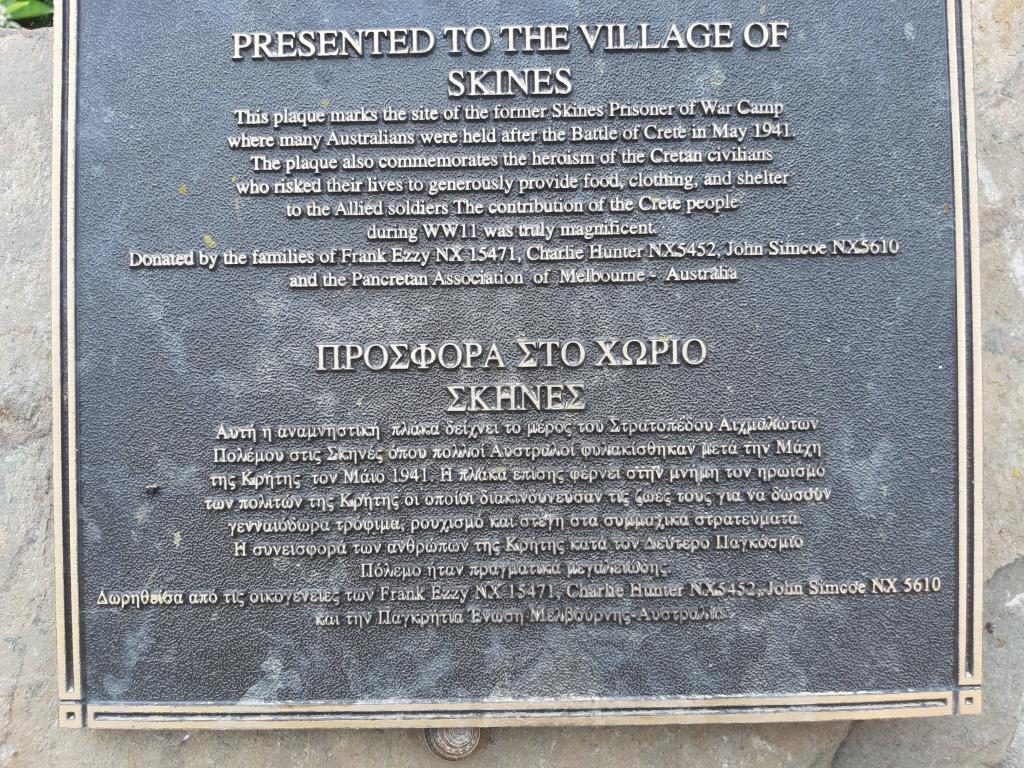
He was liberated close to the French boarders and he recovered for a while in Eastborn, England. Roy lost half of his weight in four years of his capture and he was in a very bad condition.
A few months later, Roy went back to his family in Australia and became a policeman. He hated orders since the war but he gave a lot as an officer. He lived a good life, made family and he grew old. As everyone else he didn’t want to speak a lot about the war, but only a few things to his family. He passed away in 2011 at the age of 88 years old.
I’m more than grateful to meet his daughter Jan and follow together the footprints of her father in Crete. It was amazing and very moving to guide her around the places he was stepping 78 years before and share our stories together. I would like to thank Jan from the bottom of my heard for trusting me to research about her father, sharing his story with me and chose us for her tour. I would love to see her and her family again!!
*Note: All the above information were taken from Mrs Jan, daughter of Roy East, during a quick interview after our tour we had on May 9th 2019. The above story is anecdotal and all the information based on Roy East’s stories.
Subscribe to our newsletter to receive the latest travel tips, destination insights, and exclusive offers directly to your inbox!
Take our fun and quick quiz to discover the perfect tour that aligns with your unique interests and desires. Whether you’re a history enthusiast, a foodie, an adventurer, or simply seeking relaxation, our personalized recommendations will ensure your journey matches your preferences. Take the quiz now and embark on the experience of a lifetime!

Subscribe now and get instant FREE Access to Unpublished Hand-picked Deals!

©2024 GS Tours. All Rights Reserved. Website by: Inglelandi Digital Agency
